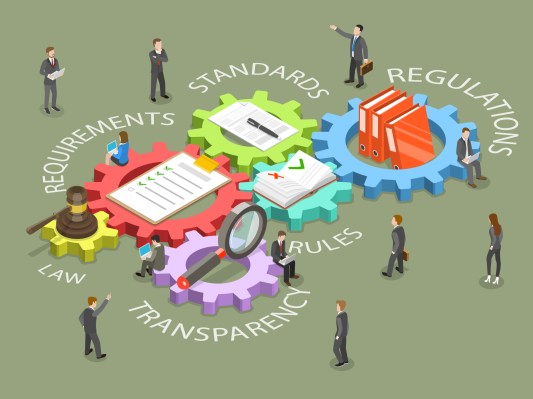As companies try to figure out how to comply with regulations like GDPR, ISO or Sarbanes Oxley, they face a huge challenge just getting started. Hyperproof, a Bellevue, Wash. startup, is launching a new product to help companies build a workflow to get them in compliance in a more organized way.
Company co-founder and CEO Craig Unger says most companies struggle with the complexity of compliance. It involves a lot of different activities and often requires the cooperation of employees, who typically aren’t involved in compliance.
Hyperproof wants to provide a single place where companies can undertake their compliance activities. “In reality, there’s no single place where if you’re a compliance officer, you can say, ‘here is where I do my work.’ Here is the equivalent of my SAP system for a CFO or my CRM system for a head of sales or head of marketing — and Hyperproof is just that,” Unger explained.
He says most companies do compliance today in a fairly ad hoc way, relying on technology like spreadsheets to track tasks, and email to make requests for needed information. What Hyperproof does is package all of that into a single program. You indicate which compliance regimen you want to work with, and Hyperproof builds a workspace for you with all of the requirements you need for that compliance framework.
Unger says at this point, the company is simply putting all of the tasks in a single workflow to simplify and organize your activities around this compliance framework.You can also import a spreadsheet to get that information inside Hyperproof, or outline the requirements in your own language in the program.
“Once you have a defined program in place, you can start working with the rest of the organization in a collaborative way by sending emails. The evidence that comes back gets put inside Hyperproof as an immutable record with an audit trail around this data collection,” Unger explained. Should you get audited, you have a central place to show the auditor your work.
The company has concentrated on building the workflow part of this, but in the future wants to add automation and APIs to connect directly to other systems to automate many of the activities. The goal with the initial release was to get companies a compliance framework workflow, and then build on that in the future.
The company was founded last year and has raised $3 million from 23 angel investors in the Seattle area where they are based. In fact, Unger is a former Microsoft employee and also helped found Azuqua, a workflow startup he sold to Okta this year for $52.5 million.
